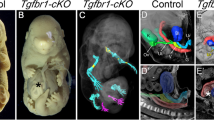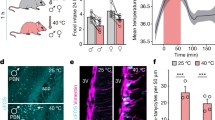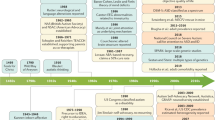Abstract
ENKEPHALINS are endogenous opioid peptides that are derived from a pre-proenkephalin precursor protein1,2. They are thought to be vital in regulating many physiological functions, including pain perception and analgesia, responses to stress, aggression and dominance3–5. Here we have used a genetic approach to study the role of the mammalian opioid system. We disrupted the pre-proenkephalin gene using homologous recombination in embryonic stem cells to generate enkephalin-deficient mice. Mutant enk−/− animals are healthy, fertile, and care for their offspring, but display significant behavioural abnormalities. Mice with the enk−/− genotype are more anxious and males display increased offensive aggressiveness. Mutant animals show marked differences from controls in supraspinal, but not in spinal, responses to painful stimuli. Unexpectedly, enk−/− mice exhibit normal stress-induced analgesia. Our results show that enkephalins modulate responses to painful stimuli. Thus, genetic factors may contribute significantly to the experience of pain.
This is a preview of subscription content, access via your institution
Access options
Subscribe to this journal
Receive 51 print issues and online access
$199.00 per year
only $3.90 per issue
Buy this article
- Purchase on Springer Link
- Instant access to full article PDF
Prices may be subject to local taxes which are calculated during checkout
Similar content being viewed by others
References
Comb, M., Rosen, H., Seeburg, P., Adelman, J. & Herbert, E. DNA 2, 213–229 (1983).
Nieuwenhuys, R. Chemoarchitecture of the Brain 1–246 (Springer, Berlin, 1985).
Rosenfeld, J. P., Akil, H., Young, E., Walker, J. M. & Watson, S. J. Neurosci. Biobehav. Rev. 18, 403–409 (1994).
Mansour, A., Fox, C. A., Akil, H. & Watson, S. J. Trends Neurosci. 18, 22–29 (1995).
Diaz, J. L. & Asai, M. Behav. Brain Res. 39, 275–280 (1990).
Yamada, K. & Nabeshima, T. Behav. Brain Res. 67, 133–145 (1995).
Pasternak, G. W. Clin. Neuropharmacol. 16, 1–18 (1993).
Menendez, L., Andres-Trelles, F., Hidalgo, A. & Baamonde, A. Brain Res. 611, 264–271 (1993).
Marek, P., Mogil, J. S., Sternberg, W. F., Panocka, I. & Liebeskind, J. C. Brain Res. 578, 197–203 (1992).
Rubinstein, M. et al. Proc. Natl Acad. Sci. USA 93, 3995–4000 (1996).
Lipp, J. Clin. Neuropharmacol. 14, 131–147 (1991).
Fanselow, M. S. Behav. Neurosci. 98, 79–95 (1984).
Gerlai, R. Trends Neurosci. 19, 177–181 (1996).
Archer, J. Anim. Behav. 21, 205–235 (1973).
Walsh, R. N. & Cummins, R. A. Psychol. Bull. 83, 482–504 (1976).
Flint, J. et al. Science 269, 1432–1435 (1995).
Treit, D. & Fundytus, M. Pharmacol. Biochem. Behav. 31, 959–962 (1989).
Shepherd, J. K., Grewal, S. S., Fletcher, A., Bill, D. J. & Dourish, C. T. Psychopharmacology 116, 56–64 (1994).
Chen, C., Rainnie, D. G., Greene, R. W. & Tonegawa, S. Science 266, 291–294 (1994).
Davis, M. Annu. Rev. Neurosci. 15, 353–375 (1992).
Kruk, M. R. Neurosci. Biobehav. Rev. 15, 527–538 (1991).
Chozick, B. S. Int. J. Neurosci. 26, 197–217 (1985).
Good, A. J., Westbrook, R. F., Shaikh, M. B., Lu, C. L. & Siegel, A. Behav. Neurosci. 109, 631–641 (1995).
Rodgers, R. J. & File, S. E. Pharmacol. Biochem. Behav. 11, 505–511 (1979).
File, S. E. & Rodgers, R. J. Pharmacol. Biochem. Behav. 11, 313–318 (1979).
Siegel, A. & Schubert, K. Rev. Neurosci. 6, 47–61 (1995).
Tybulewicz, V. L., Crawford, C. E., Jackson, P. K., Bronson, R. T. & Mulligan, R. C. Cell 65, 1153–1163 (1991).
Walker, J. M., Berntson, G. G., Sandman, C. A., Kastin, A. J. & Akil, H. Eur. J. Pharmacol. 69, 71–77 (1981).
Pellow, S., Chopin, P., File, S. E. & Briley, M. J. Neurosci. Methods 14, 149–167 (1985).
Giraud, P. et al. Neuropeptides 1, 237–252 (1981).
Author information
Authors and Affiliations
Rights and permissions
About this article
Cite this article
König, M., Zimmer, A., Steiner, H. et al. Pain responses, anxiety and aggression in mice deficient in pre-proenkephalin. Nature 383, 535–538 (1996). https://doi.org/10.1038/383535a0
Received:
Accepted:
Issue Date:
DOI: https://doi.org/10.1038/383535a0
This article is cited by
-
Enkephalin release from VIP interneurons in the hippocampal CA2/3a region mediates heterosynaptic plasticity and social memory
Molecular Psychiatry (2022)
-
Capsazepine decreases corneal pain syndrome in severe dry eye disease
Journal of Neuroinflammation (2021)
-
Regulation of Opioid Receptors by Their Endogenous Opioid Peptides
Cellular and Molecular Neurobiology (2021)
-
Dual Enkephalinase Inhibitors and Their Role in Chronic Pain Management
Current Pain and Headache Reports (2021)
-
Agonist-induced phosphorylation bar code and differential post-activation signaling of the delta opioid receptor revealed by phosphosite-specific antibodies
Scientific Reports (2020)
Comments
By submitting a comment you agree to abide by our Terms and Community Guidelines. If you find something abusive or that does not comply with our terms or guidelines please flag it as inappropriate.



